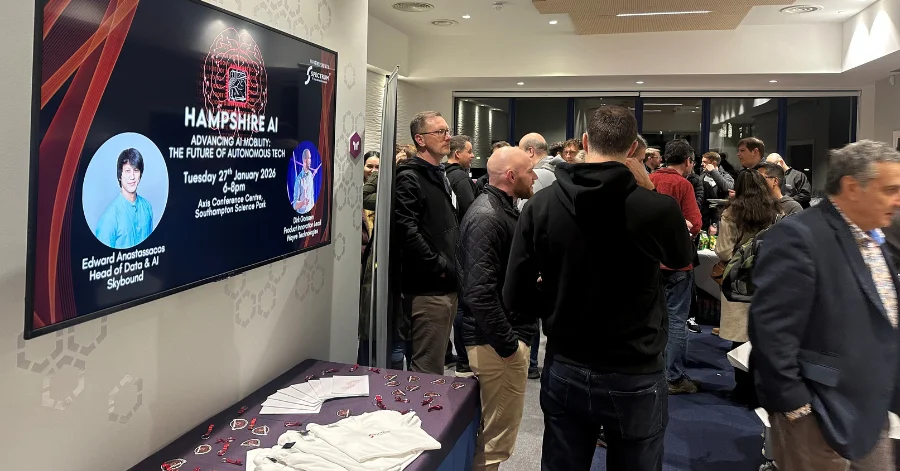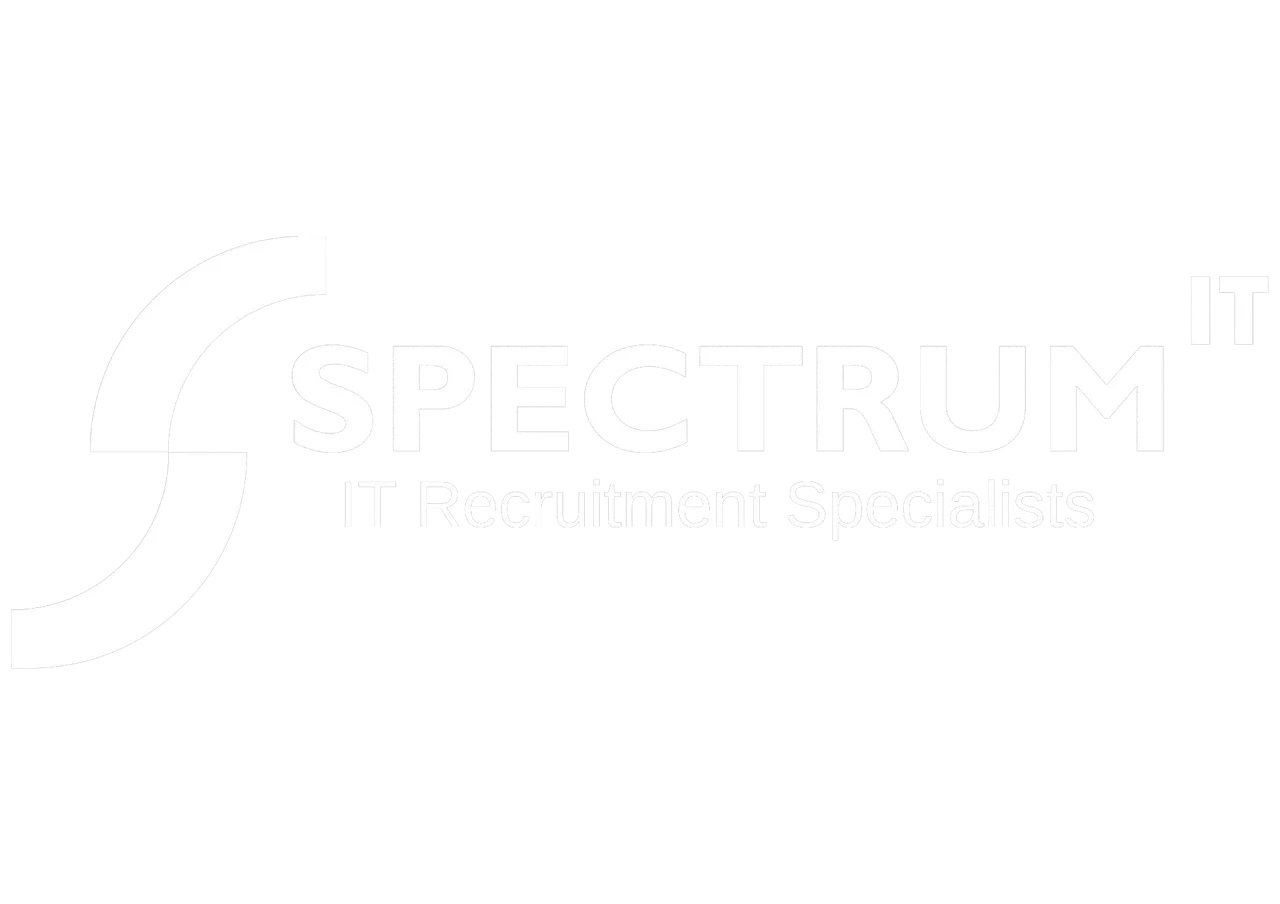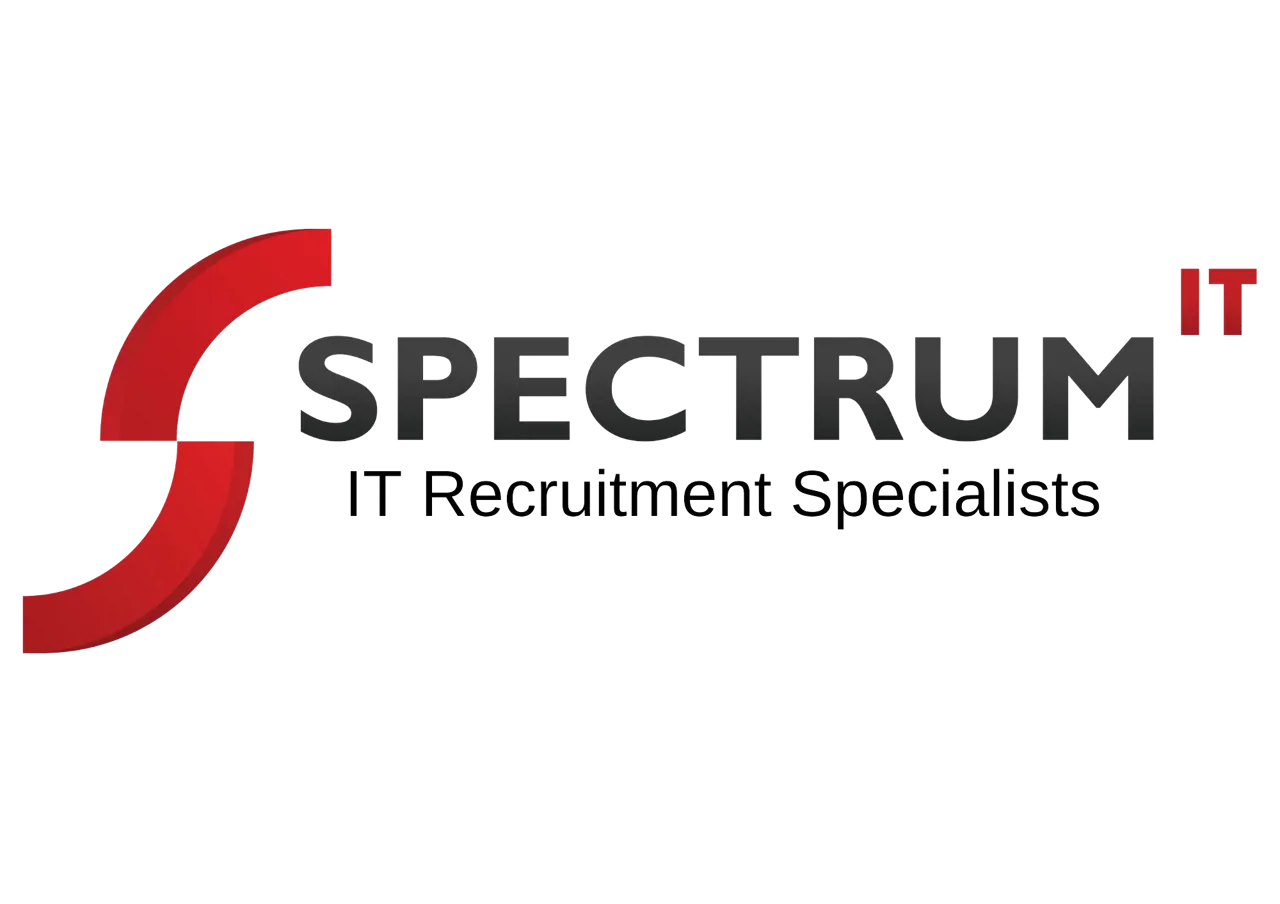
AI in Recruitment – 5 Tips from Tech Hiring Experts
03 Mar, 202512 minutes
There’s no denying AI is playing a role in recruitment right now. At Spectrum IT Recruitment, we’re seeing changes in how candidates approach job hunting and how employers assess talent. For example, candidates are leveraging the power of AI to streamline their CVs and prepare for interviews, while recruiters are implementing automated tools to speed up the hiring process. With the rise of chatbot tools like ChatGPT, CV scanners and Applicant Tracking Systems, and automated technical tests, the world of IT recruitment is undergoing a transformation.
Both job searching and job hiring tasks are being revolutionised in the modern AI-driven environment, bringing with it both advantages and challenges. Here we take an honest look at the good, the bad and the ugly when it comes to utilising AI to optimise the job searching process, with advice from our recruitment experts.
CVs in an AI-led hiring process
With the increased use of CV scanning tools and applicant tracking systems (ATS), designed to pass the best applicants on to the hiring team, candidates can find it hard to move forward in their applications. These tools rely on seeking out keywords that relate to the functions of the job role. AI can be helpful for identifying these keywords to include within a CV to improve the chances of progressing to the next stage, but it needs to be used wisely.
- The good – A CV is designed to represent each candidate to the best of their abilities. Relevant keywords can help a CV to stand out, but any keywords used need to be truly representative of your skills and abilities. Hiring managers will use a CV as a basis for moving a candidate forward to interview and to understand your skills and experience. While AI can be incredibly useful in identifying keywords that are relevant to you, it’s not a substitute for substance; only pick and include keywords that are authentic and verifiable.
- The bad – Too much information is as bad as no information. We’ve seen CVs that are heavy on keywords and personal information. AI can present a lot of options, but it’s up to you to refine that information into a concise and clear CV. Recruiters are often busy and handling a mountain of applications, meaning they don’t have time to trawl through pages of details.
- The ugly – We’ve come across candidates who’ve used keywords on their CV but changed the font colour to white to prevent detection. It’s clear in these cases that AI has been used to generate a long list of keywords and desirable skills, but in most cases, these are not actually relevant to the applicant’s experience or background. It might pass the CV scanners, but the lack of authenticity will prevent the recruiter from progressing the application.
Recruiter Tip: Ensure any keywords you use in your CV relate to skills you can back up when it comes to taking technical tests.

When cover letters still add value
With AI increasingly handling early-stage CV screening, cover letters no longer carry the same weight they once did in every hiring process. In many UK tech roles, they are not reviewed by AI systems and are often only read after a CV has passed initial screening, if they’re read at all. This means they are rarely a deciding factor early on, particularly for high-volume or highly technical roles.
- The good – When used in the right context, a cover letter can still add value. They are most effective for startup roles, senior or hybrid positions, or when a candidate is changing direction and needs to explain their motivation or fit. AI can be a useful starting point for structuring a letter, but personalisation is essential. A short, role-specific cover letter written for a human reader can support an otherwise strong application.
- The bad – Generic, one-size-fits-all cover letters add little value and are increasingly ignored. Short, poorly written letters filled with errors or vague statements can do more harm than good. If you’re going to include one, it needs to show intent and effort.
- The ugly – Cut-and-paste or obviously AI-generated cover letters are easy for recruiters to spot. They often lack relevance, personality and genuine alignment with the role, making them a quick reason for an application to be overlooked.
Recruiter Tip: For most candidates, the priority should remain a well-optimised CV, with cover letters used selectively as supporting context rather than a requirement.

Preparing for interviews
Interviews can be intense, and it’s a good idea to be prepared for whatever might be thrown your way. AI can be a helpful tool in preparing for a tech interview, but it shouldn’t be used to answer for you.
- The good – AI can be used to research the role you’re applying for, the company that’s hiring and relevant industry trends. There are some great examples of AI support tools to prepare you for interviews, such as Google’s Interview Warmup, which enables you to practise key questions, get insights about your answers and become more comfortable with being interviewed. If you can, practise with a recruiter or peer, as it’ll be a human hiring you, not an AI machine.
- The bad – It can be tempting to use AI support tools to generate answers to common interview questions and learn the answers to use them in the interview itself. The problem is that much like AI-generated CVs, these answers are often generic. This comes across as ungenuine and inauthentic, and experienced hiring managers will be able to identify when an answer comes from you and when it’s being parroted from AI.
- The ugly – With the rise of virtual interviews, there’s a temptation to lean too heavily on AI, using it to answer questions in real time. There are many problems with this, not least that it means you’re not entirely focused on the interview as you’re typing the questions or reading the answers. If you’re using it for technical questions, as well as non-technical ones, then you’re professing to knowledge that you might not actually have.
Recruiter Tip: Leverage AI to help you prepare and practise for interviews, but it’s not a substitute for substance and skill.

Taking technical tests
Online technical tests are often part of the recruitment process for jobs in tech, to evaluate the skills required for the role and your suitability for hire. Take-home technical tests now come with a risk of candidates using AI to complete them, rather than being a true reflection of their problem-solving and technical skills. Recruiters may begin to favour time-restricted or live tests, and may ask follow-up questions after the technical tests for candidates to justify and explain their work.
- The good – If you want to stand out and land a job on merit, then take the technical tests seriously – it’s your opportunity to show what you can do. If you can, speak to the recruiter about the topics and questions that are likely to come up, giving you a chance to revise any areas you haven’t worked on recently. AI can be a useful support tool for reviewing skills and technical areas. Give yourself the time and space to complete technical tests at home, when you’re feeling calm and fresh. Be authentic, use your personality and showcase what you can do.
- The bad – In the tech industry, technical tests are very common as part of the hiring process. Often, the team you’re potentially being hired into will have completed the same assessments, so it acts as a benchmark for new recruits. Refusing to do these tests will result in being removed from the hiring process – something to think about before adding those covert skills and keywords to your CV: you need to be able to follow through in the technical screening.
- The ugly – Technical tests are used to ensure you have the skills needed for the role at hand. If you use AI to complete the tests or to help you find the answers/suggest solutions, this not only misrepresents your ability but can also lead to issues post-hire. Many clients now use technical test software that monitors a candidate’s screen while they’re in the testing module to ensure they’re completing the test themselves and not using AI to generate answers.
Recruiter Tip: Use AI for building self-awareness, but not as a script. Focus on showcasing your problem-solving skills and personality.

Finding the right balance
AI is here to stay. AI has its place in recruitment, but it’s not a replacement for authenticity, skill, or human interaction.
Used thoughtfully, it can help you to shine as a candidate. The skill is in finding that balance between using it as a support tool without compromising your integrity. At the end of the day, it’s your unique combination of skills, experience, compatibility and personality that truly makes the difference in landing the role.

Want expert help to stand out in an AI-driven hiring market?
Our team is here to support you in your job search, with advice on how to utilise AI (and when not to), interview tips, and our CV checklists. Find out more about how we work with candidates and speak with our specialist recruiters, today.
If you’re interested in the wider topic of when AI gets it wrong and mitigating risk, safety, ethics and accountability, read our blog from the latest Hampshire AI networking event and join our LinkedIn group to find out more about future meetings of our local AI community.




